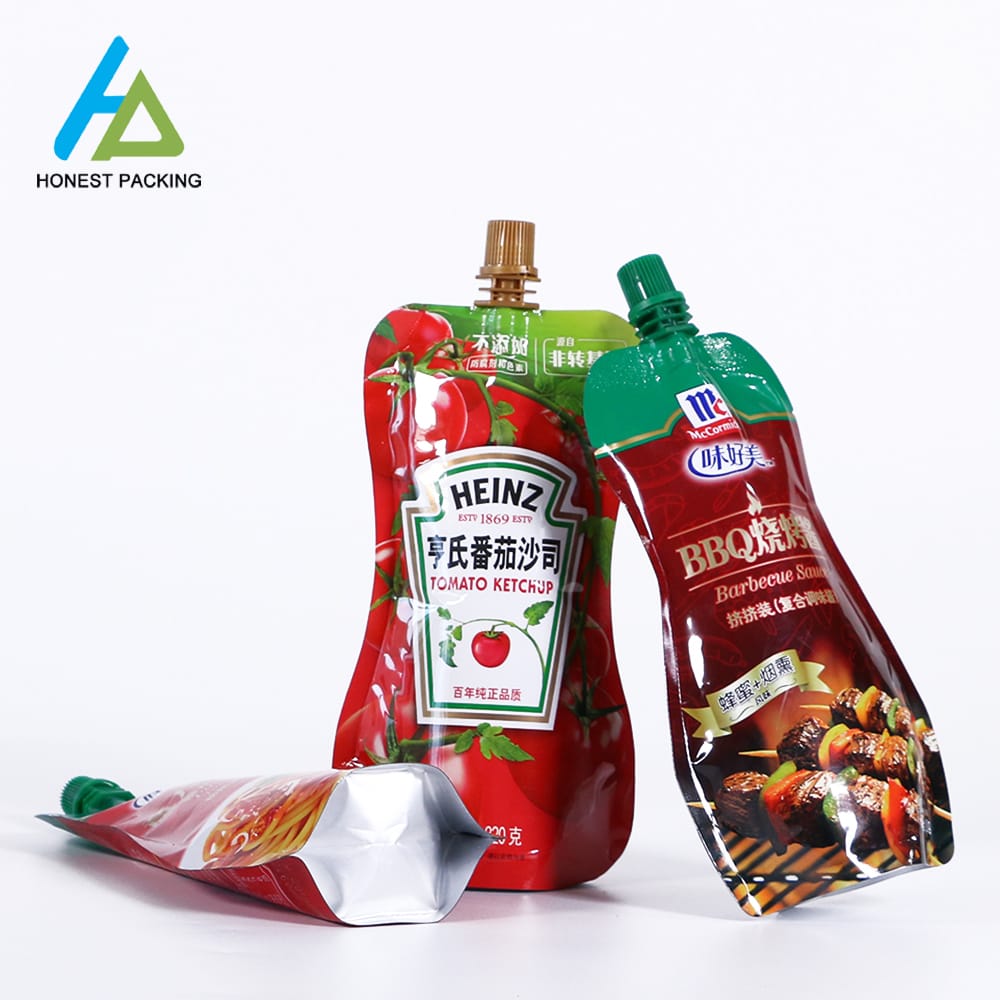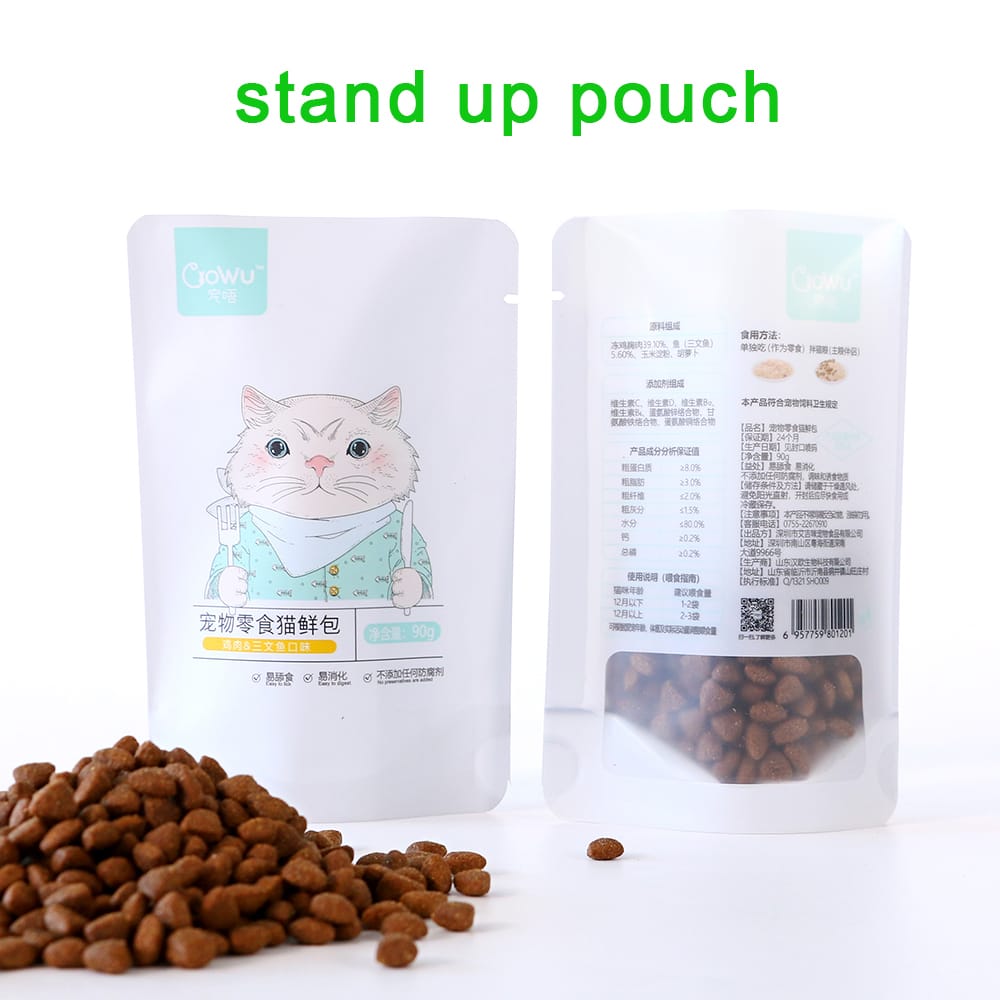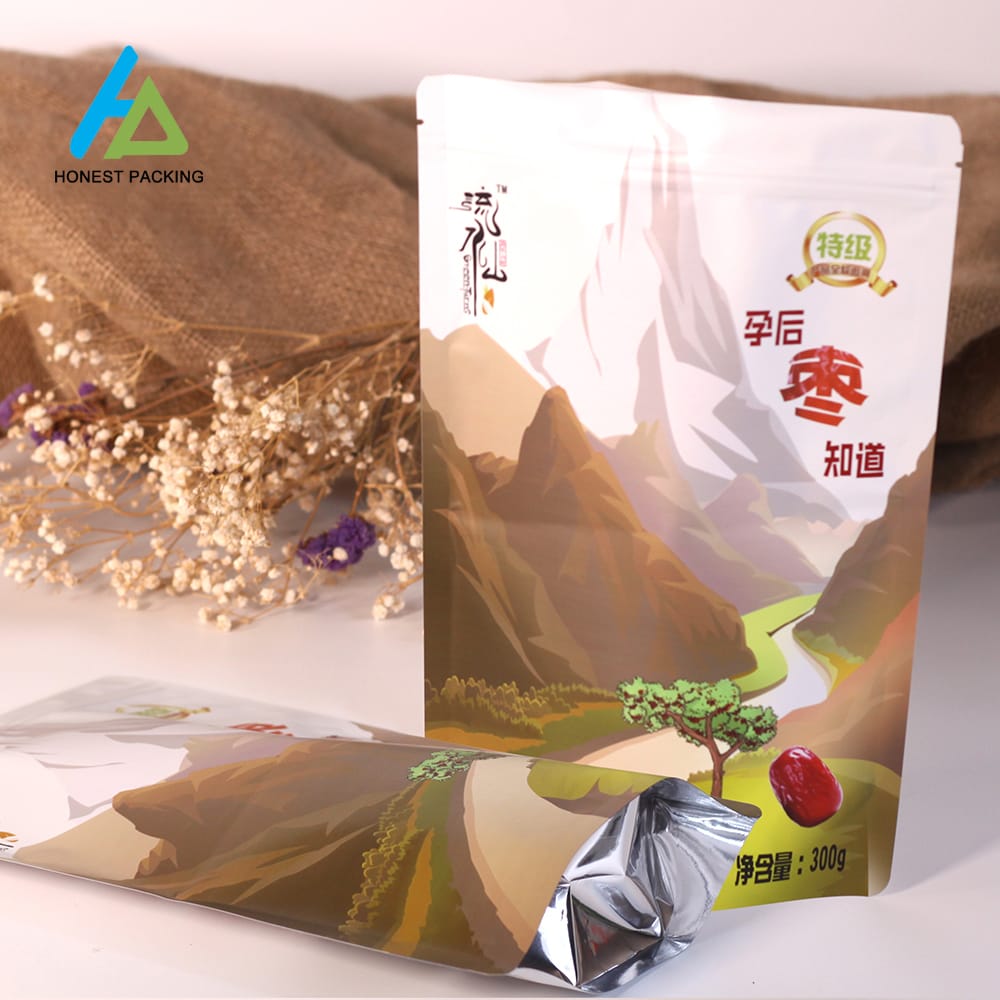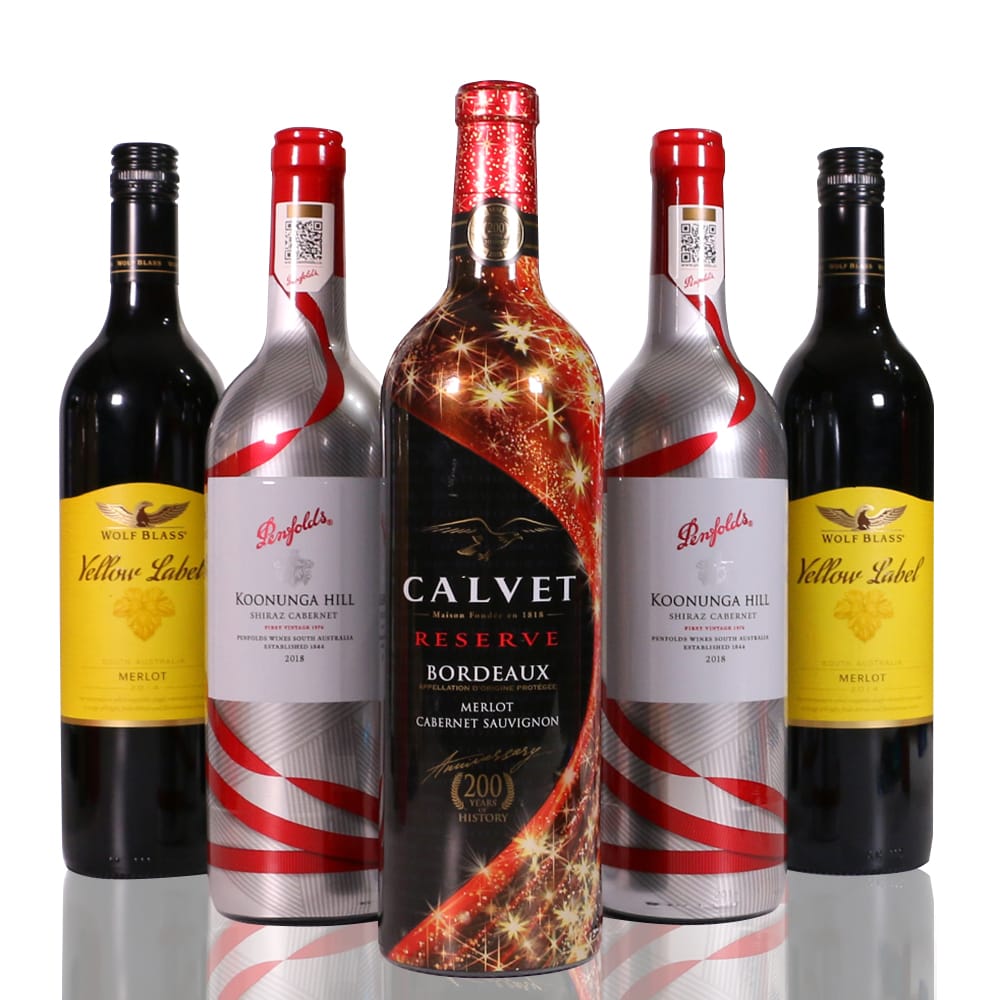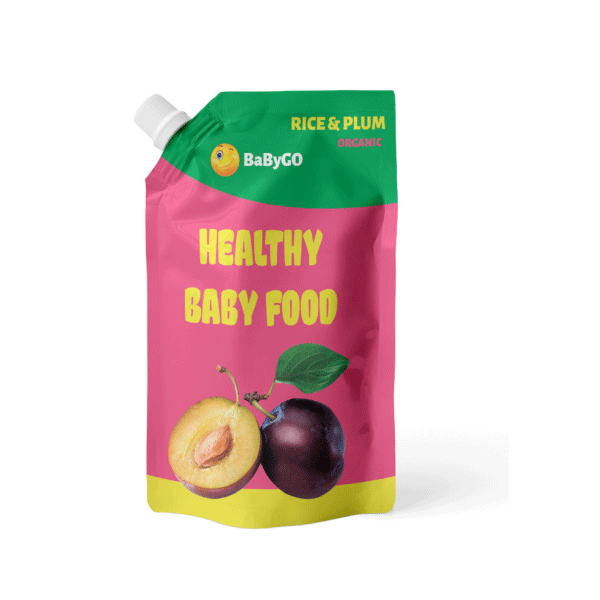Chinese wholesale Shrink Wrap Wine Bottle Labels - Showcase your brand through 360 degrees of shrink sleeves – Minfly Packaging
Chinese wholesale Shrink Wrap Wine Bottle Labels - Showcase your brand through 360 degrees of shrink sleeves – Minfly Packaging Detail:
Key Features
360-degree graphics
Tamper evidence
Multi-packs
Scuff resistance
Great solution for unique shaped containers
Digital, Flexo and Gravure Print Options
Foil, tactile & embellishment options
Sustainability options (supporting PET recycling)
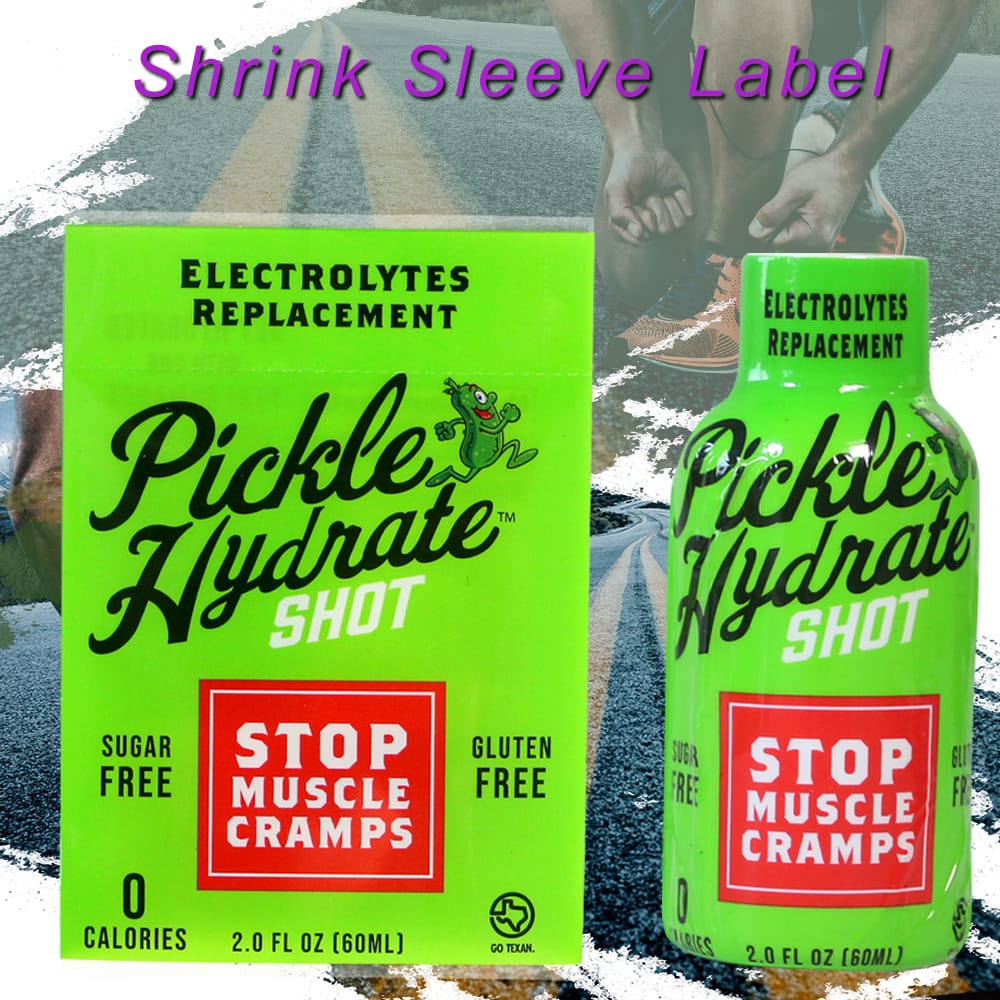
Full Wrap Shrink Label
The general shrink label is wrapped in a specific position on the bottle to highlight the product brand, without wrapping the entire bottle. And the wrap-around shrink label (wrap-around) can completely surround the bottle body and perfectly show the outline of the bottle body. The decorative effect of 360° from head to toe also reflects the super attractive appearance.
The shrink label on the top can be easily moved, and for the fully wrapped sleeve label on the bottle, even long-lived products will be given a new lease of life; if UV printing is used again, the small label will bring us will be more colorful.
Full-wrap shrink labels can also be applied to the packaging of two or more containers. Multiple products of the same type are packaged, which not only saves the cost of packaging materials, but also reduces storage costs a lot. Any pattern of containers can be printed, eliminating the cost and time of printing an image on each container.
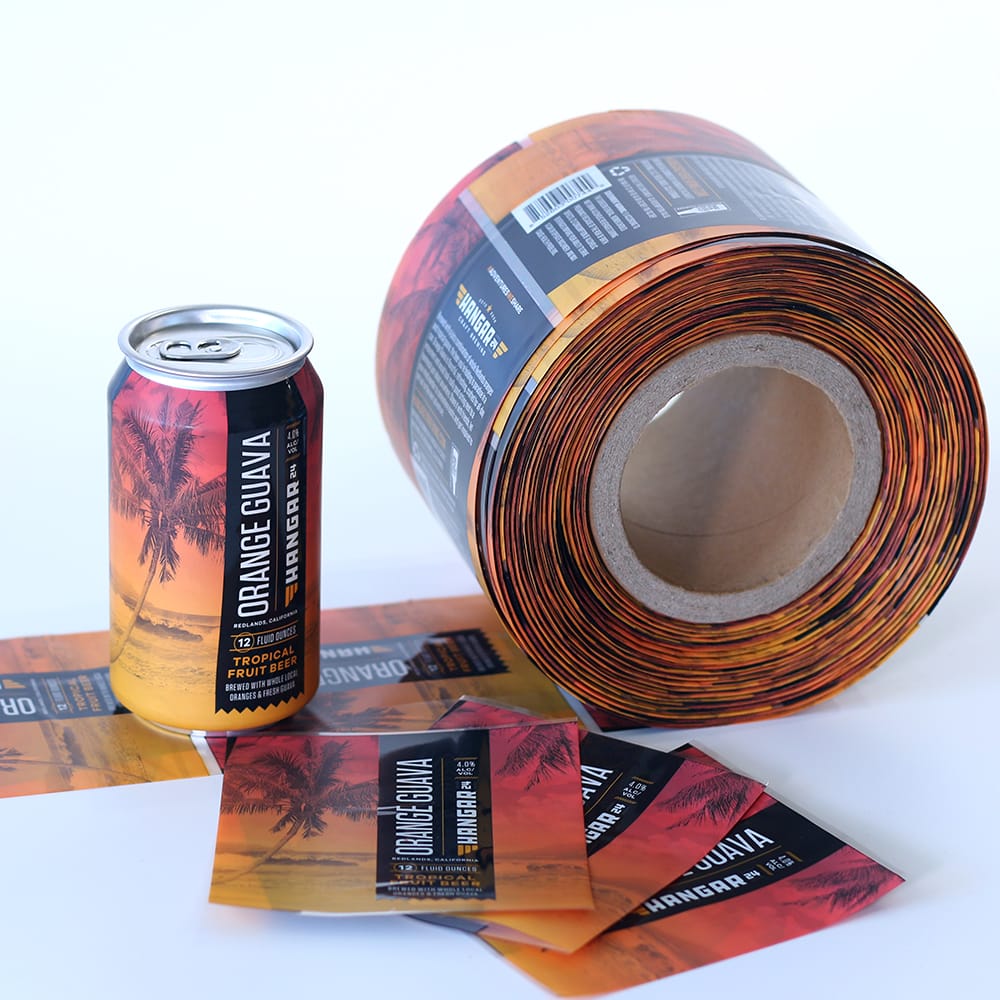
shrink sleeve labels
The shrink-sleeve label (shrink-sleeve for short) needs to be processed into a certain shape by heating according to the specified shape to match the contour of the bottle. Even if it is a conical flask, or if there is no body to support the label, the shrink sleeve label can be placed in the proper position before heat shrinking.
For the semi-finished product of sleeve label, it is required to have a bright surface and be pre-printed in color. During the preforming process, the perforations on the surface of the label can ensure that the sleeve label can move freely on the bottle body, so that the position of the label on the bottle body can be quickly adjusted. Because, it is very necessary to manually adjust the position of the semi-finished sleeve label before heating and shrinking.
One of the largest applications of semi-finished sleeve labels is for anti-counterfeiting. When some brands of sleeve labels are heat-shrinked, warning information and product codes have been attached to the labels, and they are used together with other types of anti-counterfeiting labels. This can not only improve the anti-counterfeiting of products, but also alleviate the troubles caused by consumers due to problems in the logistics process. At present, the most common application of such anti-counterfeiting labels is in the field of food and pharmaceutical packaging.
SHRINK SLEEVE Details
MINFLY has put together some details to help you become a Shrink Sleeve Expert in no time!
Slit Width is the total width of a shrink sleeve before it is seamed.
Cut Height is the total length of the sleeve.
Slit Width is the total width of a shrink sleeve before it is seamed.
Cut Height is the total length of the sleeve.
Lay Flat is the width of the seamed shrink sleeve or the width of the finished product, which is less than a half of slit width.
Generally, the print height is 4 mm less than the cut height, leaving 2 mm on the top and the bottoms of the shrink sleeves without printing. Similar, the print width is 4 mm less than the slit width to accommodate for seam.
***1 inch = 25.4 mm***
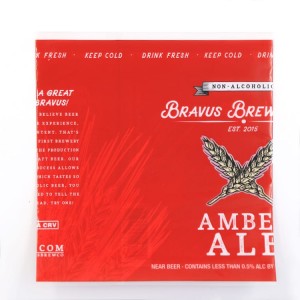
The formula to calculate the slit width, if unknown, is to measure the container’s circumference in millimeters, and add 13 mm. If unknown, the formula to calculate the lay flat is to take the slit width and subtract 8 mm, then divide by 2.
Slit Width = Container Circumference (mm) + 13 mm
Lay Flat = Slit Width - 8 mm / 2
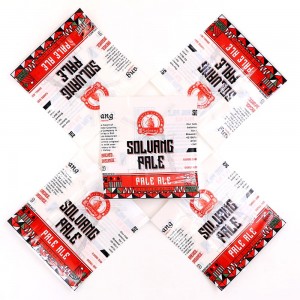
In order to guarantee product quality, the provided design documents need to contain detailed specifications and dimensions. Design files must show fold lines, seam areas, and layout restrictions. As to ensure a high quality printing, all picture resolutions should be at least CMYK module 300 dpi at 1:1 size. Colors and their Pantone® numbers should be clearly labeled if it is necessary. Spot colors are best for matching specific colors. Printing colors will be matched accordingly to CMYK and spot color to Pantone® standards.
Critical Art Box is the area in which the sleeve will be flat against the container. The areas above and below this box will be on the bend of the container. The artwork can become distorted outside the critical art box, but it is at the customer’s discretion on whether or not to put art in those areas. The area to the left of the box can be lost during the seaming process.
Fold Lines indicate where the sleeve will be folded during seaming. It will be the front of the sleeve and some customers have very crucial fold line placement due to their container. Normally there is a fold 25 mm from the left-hand side of the sleeve, but can be adjusted if needed.
Slip Coat — the purpose of a slip coat is to:
1. Help the sleeve slide onto the container without resistance
2. Scratch resistance for the machinery auto-applying the sleeve. 99.9% of the time auto applied roll sleeves require a slip coat. We offer white slip coat, clear slip coat, or a UV non-slip slip coat.
We finish sleeves on rolls or sheeted as flats. Roll sleeves can be finished on 5″, 6″ or 10″ cores. When sheeted in flats, we typically will chipboard and rubber band in stacks of 100 unless otherwise requested.
Barcodes — We strongly suggests barcodes be printed vertically on the sleeve, not horizontally. Depending on the shrinkage of the sleeve, the barcode’s bars can close when printed horizontally, causing the barcode to not scan correctly.
SHRINK SLEEVE MATERIALS
Polyvinyl chloride (PVC) is a high density film that shrinks at low temperatures. PVC is the easiest film to control during shrinking, and it is also the most commonly used shrink sleeve material. It has excellent shrinkage, sharpness, print quality and a wide range of shrink temperatures and shrink ratios. PVC also has high impact strength for additional weather resistance. This wear-resistant shrink sleeve material is the lowest cost, but also less environmentally friendly than other shrink sleeve materials currently in use.
Polyethylene terephthalate (PETG) is a high density film with a high strength ratio and excellent clarity. While PETG is the most expensive and heat-resistant shrink sleeve material, they are the most abrasion-resistant, have a higher gloss, and have a higher shrinkage ratio. Additionally, PETG is pasteurizable and recyclable, features that are often sought in today’s market.
Polylactide or polylactic acid (a misnomer since PLA is not an acid) is a biodegradable thermoplastic made from renewable resources. The fact that PLA is biodegradable has increased its popularity in recent years, and in addition to its use as printed shrink sleeve labels, PLA is also used as a loose-filled flexible packaging material.
Expanded Polystyrene (EPS) is a recyclable thermoplastic material. Although EPS is a lightweight material, its light weight, relatively high mechanical strength, and high heat resistance make it an excellent insulator. EPS provides excellent fit product protection.
Manual - In this process, custom printed shrink sleeve labels are manually applied to containers before shrinking. This method is ideal for short runs and sampling prototype programs.
Automatic – With automatic applications, conveyors and other machines are used to slide shrink film materials over the containers and then process them through a heat shrink area to achieve the form fit produced by shrink sleeves.
SLEEVE TYPE
Clear – A translucent sleeve which can be printed on but will otherwise show through to the container, and if a clear container, the contents therein. This type of shrink sleeve is ideal if you would like to showcase your product.
White – The shrink sleeve applied to the container is a white opaque film. Still printable, this type of sleeve will give the impression that the area of the container where applied is white.
PERFORATIONS FOR SHRINK SLEEVES
None – There will be no perforations on your shrink sleeve, it will be a solid label for the type of label selected.
Vertical – There will be vertical perforations that will make it easy to tear the shrink sleeve apart. This perforation is commonly found on safety-seals, and can be used in conjunction with horizontal perforations to create an entirely removable tamper-evident band.
Horizontal – This type of perforation allows part of the shrink sleeve, such as a tamper-evident band, to be easily removed without damaging the rest of the label so your product identity stays in tact. This also gives customers piece of mind when purchasing a product so they know it has not been altered.
T-Perforation – The perforation is used as an “easy to remove” tamper evident band.
PLAIN OR PRINTED SHRINK SLEEVES
Plain – Your shrink sleeve labels will simply act as a barrier to protect your container and will not have anything printed on it.
Custom Printed – In this format, you can print any design on the shrink sleeves however you want. Though this is more difficult to set up, it will be your custom design that makes your products stand out from all the others.
NUMBERS OF COLORS PRINTED
The number of colors you select to print with will also determine the cost of printing. The fewer colors selected, the less expensive it will be to print. The number of colors will be determined by your artwork and graphic design.
PRINT STYLE
Flexographic Printing – This process of printing uses flexible polymer plates. The image on these plates is raised in a “letter press” type of image. Line screens are typically 133 to 150 lines per inch. Run length for flexographic jobs typically starts at 5,000 units.
Digital Printing – Digital printing uses liquid toner and uses no print plates. Because there are no printing plates the cost for short run printing is less expensive than Flexographic and Gravure printing. Run lengths for digital units typically don’t exceed 10,000 units.
Gravure Printing – Gravure is an intaglio form of printing. It uses metal cylinders that have been etched with ink cells. Each cell holds more or less ink based on the shadow or highlight tonal qualities required for printing. Gravure printing is a very high quality form of printing used for long runs over 500,000 units.
FAQs
Q: What Is Shrink Sleeve Printing?
A: With traditional printed labels, the labels affix to the product container itself. Shrink sleeves wrap around the entire product container and shrink to conform exactly to the shape of the container using heat, resulting in a smooth and seamless product label that covers the entire container.
Q: How Does Shrink Sleeve Printing Work?
A: MINFLY uses high-gloss PETG film that offers the highest achievable shrink rate. Gentle heat application ensures the film completely conforms to the product container, offering a 360-degree display of high-resolution artwork, product information, and branded graphics.
Q: How Are Shrink Sleeve Applied?
A: After printing the shrink sleeve, we align it around the product container and use heat to shrink the sleeve around the container.
Q: Do Shrink Sleeves Work on Aluminum Cans?
A: At MINFLY, beverages in aluminum cans are one of the most common shrink sleeve processes we complete for our customers. Our partial-sleeve shrinking labels can fit virtually any size metal can and conform completely. This ensures 360-degree branding with all required product information and easy recycling.
Q: How Do You Seal Shrink Sleeves?
A: Our partial sleeve labels fit perfectly around most product containers, leaving room for an easily accessible cap. Full-body shrink sleeves can encase the product container as well as the cap, complete with tamper-evident seals or perforation to ensure quality. It’s also possible to bundle multiple items together with our multi-pack shrink sleeves. With any type of shrink sleeve, we use a steam tunnel or heat shrink tunnel to seal sleeves completely.
Q: Is Shrink Sleeve Printing Cost Effective?
A: Shrink sleeve printing can potentially save manufacturers money they would otherwise spend on separate caps and tamper-evident seals. Shrink sleeves also protect consumers by ensuring they purchase authentic, high-quality products. They can also eliminate the need for separate front and back labels for some products.
Shrink sleeve printing allows any product manufacturer to create visually stunning, safe, and original product packaging for all types of consumer products. We are proud to offer our innovative shrink sleeve printing services to our customers.
Product detail pictures:

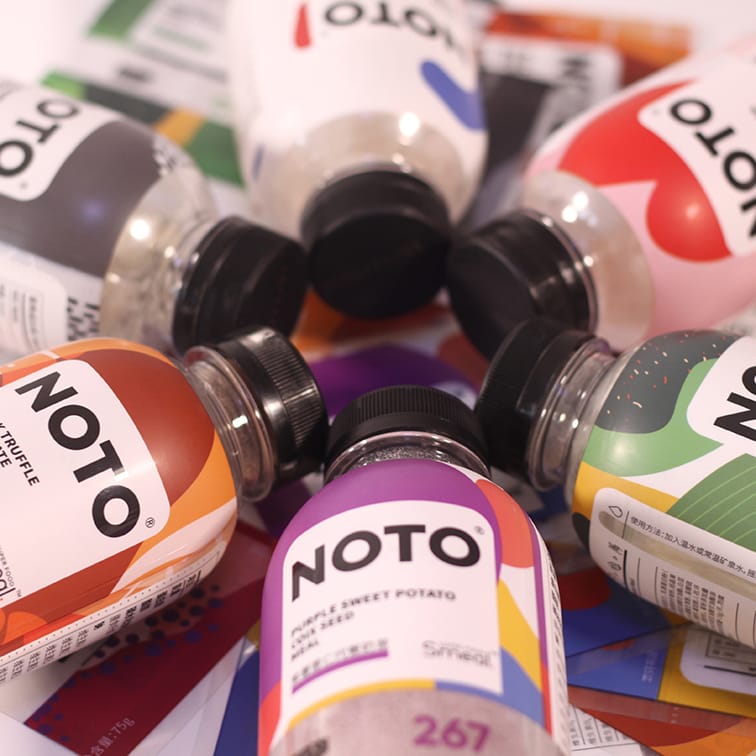


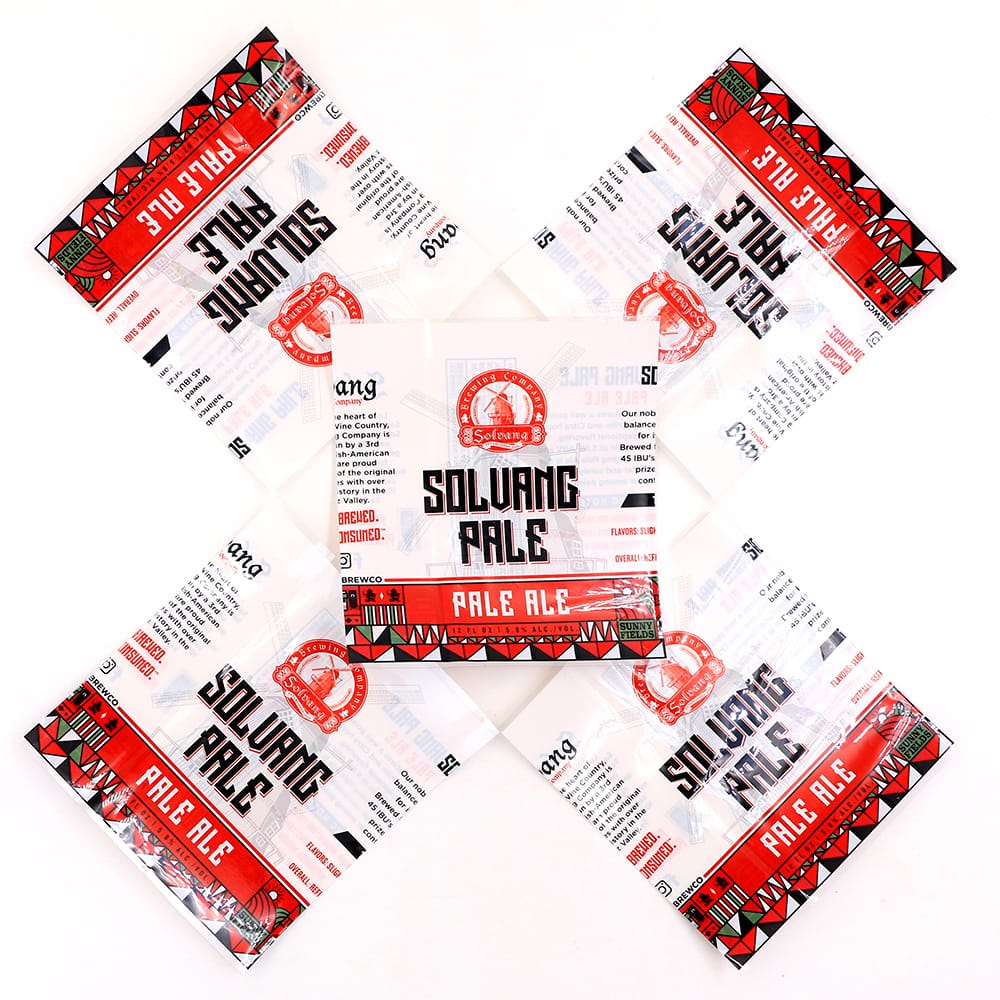
Related Product Guide:
With dependable high-quality method, fantastic standing and ideal purchaser assistance, the series of products produced by our firm are exported to many countries and regions for Chinese wholesale Shrink Wrap Wine Bottle Labels - Showcase your brand through 360 degrees of shrink sleeves – Minfly Packaging , The product will supply to all over the world, such as: Kuwait, Kazakhstan, Frankfurt, With the principle of win-win, we hope to help you make more profits in the market. An opportunity is not to be caught, but to be created. Any trading companies or distributors from any countries are welcomed.
The supplier abide the theory of "quality the basic, trust the first and management the advanced" so that they can ensure a reliable product quality and stable customers.


